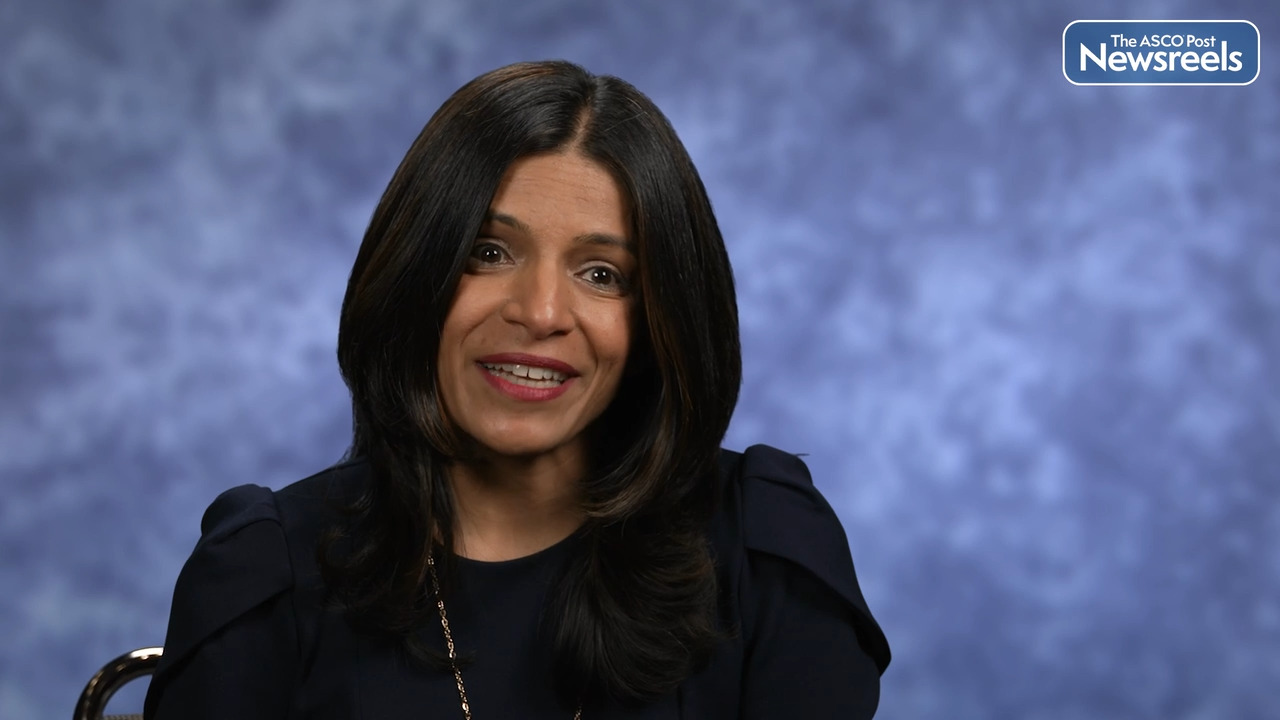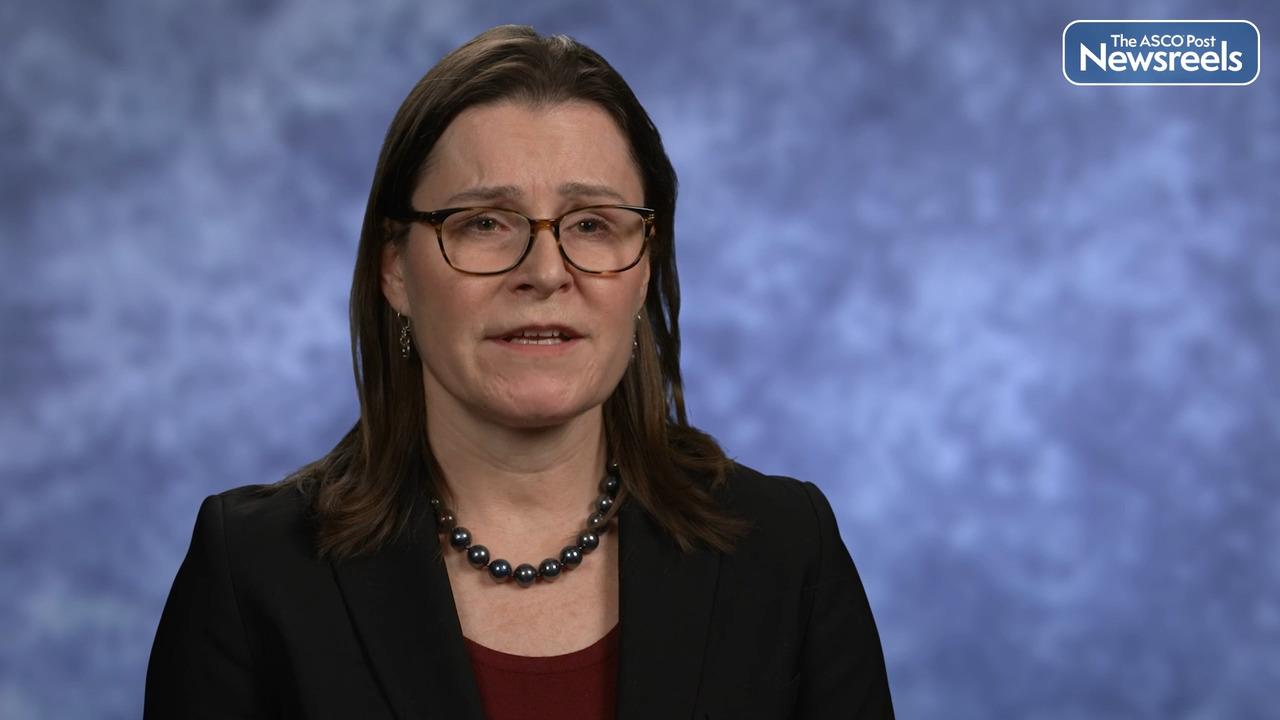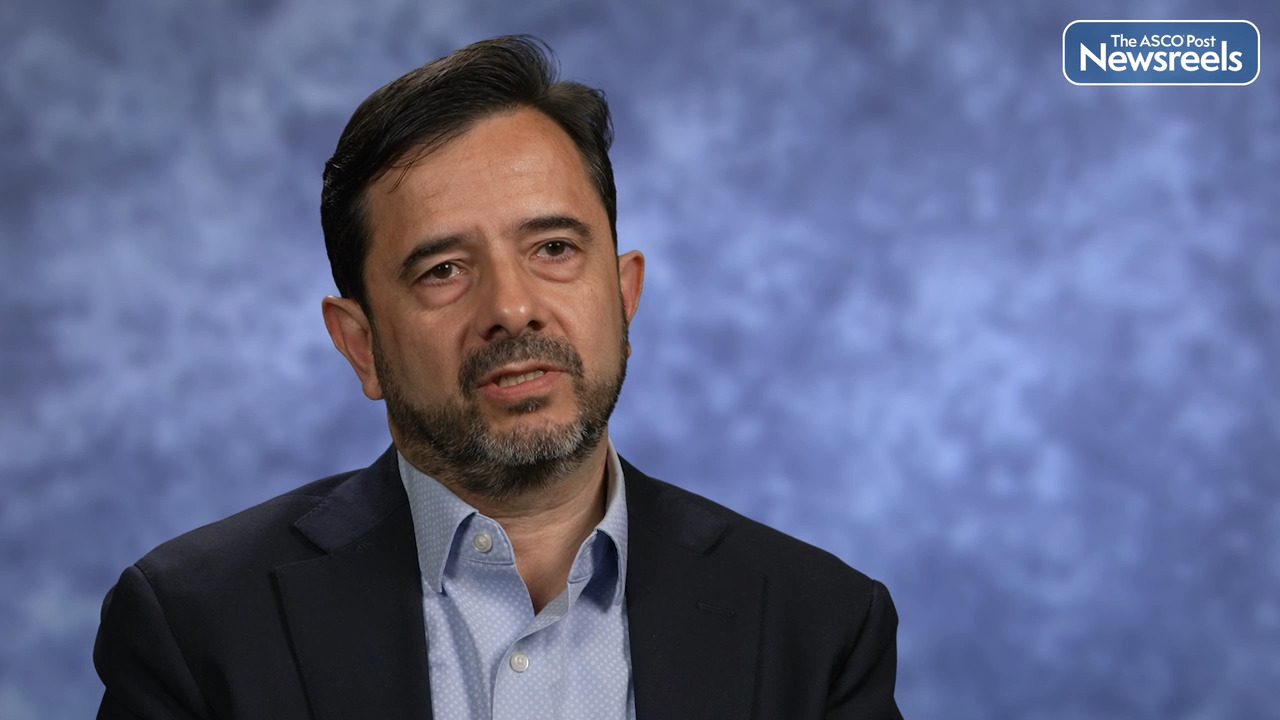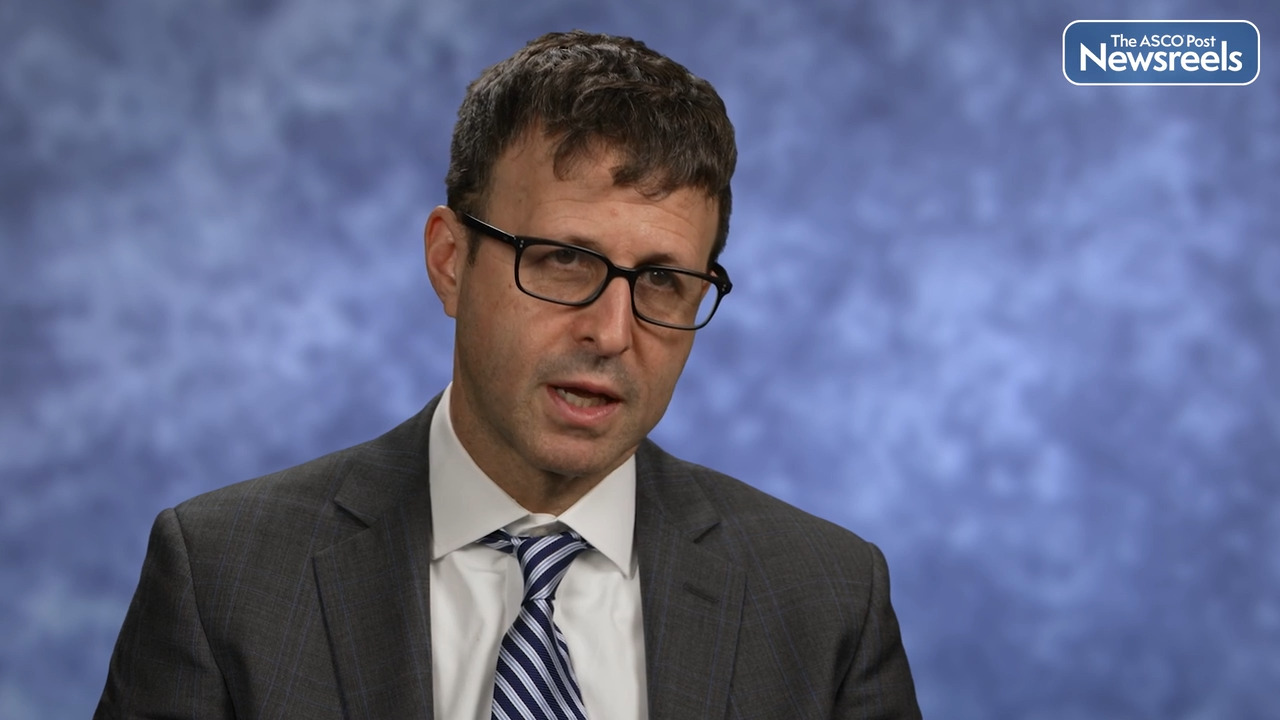Souya Nunobe, MD, PhD, on Gastric Cancer: 5-Year Follow-up on S-1 Chemotherapy for Stage II Disease
2023 ASCO Gastrointestinal Cancers Symposium
Souya Nunobe, MD, PhD, of Japan’s Cancer Institute Hospital and the Japanese Foundation for Cancer Research, discusses 5-year follow-up results of the phase III OPAS-1 trial, which compared four and eight courses of S-1, a novel oral fluoropyrimidine derivative adjuvant chemotherapy for patients with stage II gastric cancer. These final follow-up findings confirmed the benefit of S-1 and its use for 1 year to treat this population (Abstract 381).
Transcript
Disclaimer: This video transcript has not been proofread or edited and may contain errors.
Based on previous pivotal RCT, adjuvant chemotherapy of S-1 for one year for eight courses is standard treatment for pathological stage II patients who underwent D2 gastrectomy for gastric cancer. Survival of pathological stage II of patient was dramatically improved by S-1, achieving high five-year survival of 84%. So, we assume that four courses of S-1 may be a sufficient treatment and conducted JACOG1104 Phase III trial, which compared four courses and eight courses of S-1 adjuvant chemotherapy. At the first interim analysis in 2017, the present trial was terminated due to futility. Four courses of S-1 was inferior to eight courses of S-1 in terms of relapse-free survival. Here we report the final follow-up data.
Between 2012 and 2017, 519 patient were enrolled and 295 patient were allocated to each group. When the present study was terminated at the interim analysis, 27 patients of four courses were receiving S-1. Among them, 22 patients accepted the proposal to continue until eight courses. As final survival result, the RFS at five years was 85.6% for four courses and 87.7% for eight courses. The overall survival at five years was 88.6% for four courses and 89.7% for eight courses. Four courses of S-1 was [inaudible 00:02:27] inferior to eight courses of S-1 in terms of relapse-free survival.
In conclusion, this final follow-up data confirmed the primary result presented at the interim analysis. Adjuvant chemotherapy for one year or eight courses is highly recommended for pathological stage II gastric cancer.
The ASCO Post Staff
Rachna T. Shroff, MD, of the University of Arizona Cancer Center, discusses phase III results from the SWOG 1815 study, which compared gemcitabine, cisplatin, and nab-paclitaxel vs gemcitabine and cisplatin in patients with newly diagnosed, advanced biliary tract cancers. Although adding nab-paclitaxel to gemcitabine and cisplatin did not improve median overall survival in this population, exploratory analyses in patients with locally advanced disease or gallbladder cancer suggest potential clinical utility in these settings, which may warrant further evaluation (Abstract LBA490).
The ASCO Post Staff
Kohei Shitara, MD, of Japan’s National Cancer Center Hospital East, discusses the SPOTLIGHT study’s phase III findings on zolbetuximab plus mFOLFOX6 as first-line treatment for patients with the biomarker claudin-18.2–positive and HER2-negative locally advanced unresectable or metastatic gastric or gastroesophageal junction adenocarcinoma. The regimen seems to have led to an improvement in both progression-free and overall survival, with survival benefits also observed across most subgroups. Zolbetuximab plus mFOLFOX6 is potentially a new standard-of-care treatment for this population (Abstract LBA292).
The ASCO Post Staff
Laura A. Dawson, MD, of Canada’s Princess Margaret Cancer Centre, discusses phase III findings from the NRG/RTOG1112 study, which showed that stereotactic body radiation therapy (SBRT) administered prior to sorafenib vs sorafenib alone, improved outcomes in patients with advanced hepatocellular carcinoma. SBRT may become a new standard treatment option for patients with locally advanced disease, especially in the presence of macrovascular invasion (Abstract 489).
The ASCO Post Staff
Nick Pavlakis, PhD, MBBS, of Australia’s Royal North Shore Hospital, discusses phase III findings from the INTEGRATE IIa study of regorafenib vs placebo in refractory advanced gastroesophageal cancer. The trial provides a platform for the investigation of combination therapy with an immune checkpoint inhibitor, now underway in the INTEGRATE IIb study, which is evaluating regorafenib plus nivolumab compared with standard chemotherapy in patients with this type of cancer who have received two lines of prior therapy (Abstract LBA294).
The ASCO Post Staff
Richard S. Finn, MD, of the David Geffen School of Medicine at the University of California, Los Angeles, discusses findings from the RATIONALE-301 study, which showed that patients with unresectable hepatocellular carcinoma (HCC) treated with first-line tislelizumab had better health-related quality-of-life outcomes compared with those treated with sorafenib, particularly in terms of fatigue and physical functioning. These results, along with the effects on overall survival, response rate, and a favorable safety profile, support the benefit of tislelizumab as a potential first-line treatment option in this patient population (Abstract 495).





